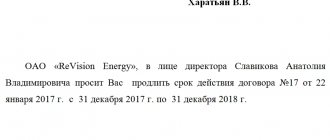Challenging a will occurs when relatives do not agree with how the testator disposed of his property, and often prove in the courts that he, for example, was insane at the time of its preparation. But if the will is signed by a notary , then proving this fact is a very difficult task. To do this, the heirs conduct a psychiatric examination, find witnesses who lived with the deceased, which influences the court’s decision. Also, the heir may consider the will to be one that affects his interests. Then they go to court to have the will declared partially or completely invalid.
There are time limits within which an heir can challenge a will under certain circumstances.
Types of wills. The beginning of their challenge
There are two main types of wills that can be invalidated:
- a voidable will is a document that is declared invalid in court;
- A void will is a will that is not properly executed and is declared invalid regardless of a court decision.
In practice, everything begins from the moment the testator dies. And then the heirs enter the struggle for the inheritance, who are ready to get it in different ways.
the reasons why a testamentary document is challenged. For example, such cases have emerged as a gross violation of the legislative process for drawing up a will, if the testator is declared incompetent as a result of a mental disorder, or he is deliberately forced to write and sign a document, using blackmail and threats of physical harm.
The testator can only bequeath his personal property . If, for example, the apartment belongs to the state, then in no way can it be registered in the name of someone else.
If the will was not drawn up in accordance with the form, which is considered a violation, or the testator was incompetent at the time the will was made, or he was forced to write it under threat of physical harm, etc. , in all these cases the will can be challenged.
Example Citizen S. died on 02/03/2012. She left a will in favor of her grandson, the son of her daughter F. After S.’s death, 3 years and 5 months passed, and F.’s sister filed a claim in court to declare this will invalid due to the fact that allegedly the mother, citizen S., was incompetent at the time of its preparation. My sister attended the funeral and knew about the existing will. In this case, citizen F. violated the statute of limitations, since for a contested will the period within which the will can be contested, according to Article 179 of the Civil Code of the Russian Federation, is one year.
The procedure for challenging the law and in what time frame is carried out
A will can be contested only after it has been announced, that is, after the death of the testator. For this purpose, it is necessary to immediately file a claim in court.
The application must contain the following information:
- information on the will;
- data of the testator and heir;
- reasons for challenging the will;
- requirements;
- proof.
The following must be attached: a receipt for payment of the obligatory state duty, evidence drawn up in the proper way.
ATTENTION !!! During the trial, the court may additionally order various types of examinations.
The Civil Code of the Russian Federation establishes the following rules for challenging. There are 2 types of invalid transactions: void and voidable transactions. Void transactions cannot entail legal consequences under any circumstances (if the will was drawn up by an incapacitated person). Disputable – form the rights and obligations of the parties until the contrary is proven in court. The statute of limitations for void transactions is 3 years from the date of discovery of the violated right, and for voidable transactions 1 year.
The consideration of such cases most often drags on for a long period of time. If the plaintiff's demands are satisfied, the will will be canceled in part or in full. The previous version may also be recognized as valid, and in the absence of such, inheritance will be made by law. In order to challenge an inheritance, you need really compelling reasons, since it is almost impossible to challenge an inheritance under the law, and under a will the probability is quite small.
Voidable wills and terms for challenging them
The deadlines for challenging a will are provided for by current legislation and are:
- one year - for situations where a voidable transaction is declared completely invalid and has no consequences;
- three years - in situations where there is a requirement to apply the negative consequences of the invalidity of a void transaction.
A contested will can only be declared invalid by a court. If no one has challenged or disputed it, then it continues to be one that has legal significance. grounds for declaring such a will invalid:
- if an individual was declared incapacitated , partially, completely or only to a limited extent;
- if an individual did not understand his actions and could not manage them , under the influence of delusion, deception, violence, threats, by agreement of both parties, one of which deliberately provoked to sign and draw up such a document, or with a random, difficult combination of various circumstances;
- if the signature is forged ;
- if the testator included in the document such property that belongs to both spouses , as it was acquired during marriage;
- if the will was drawn up in gross violation of the form or the established procedure for its execution.
Any minor violations in its drafting, if the court has determined that they do not in any way affect the will of the testator, cannot be grounds for challenging the will . If the testator filed a claim with the judicial authority to consider such a series of violations, then the court has the right to recognize or reject such a statement of claim.
It is not necessary to challenge the will in its entirety; you can challenge only the part that the heir deems necessary.
A will can only be challenged by an individual whose rights and interests have been violated. They can do this only from the moment when the inheritance is opened and the heirs have assumed their rights (Article 1131 of the Civil Code of the Russian Federation). It is impossible to challenge a will until it is opened , since there is no subject itself that can be challenged.
Rules for drawing up a will
One way to challenge a will is to prove that there are factual and legal errors in the document. A will should be understood as a unilateral agreement, the purpose of which is the personal, independent decision of a person to transfer his entire inheritance after death.
Based on this, the law establishes the following requirements for the document drawn up:
- the will must be drawn up personally and must include an certifying signature at the end. In exceptional cases, it is allowed to draw up a document by another person from the words of the testator, and possibly sign for the testator. This is allowed if the person is seriously ill or is in life-threatening conditions. However, in this case, for the document to be recognized as a will, the presence of two witnesses will be required;
- The law establishes a mandatory requirement for notarization. A document cannot be recognized as a will without this. However, the Civil Code of the Russian Federation provides for such a provision as notarized wills - these are documents signed by another authorized person in certain situations when the presence of a notary is impossible. For example, the head of a colony in places of deprivation of liberty, the immediate supervisor of a military personnel during combat operations.
ATTENTION !!! If a person is in a situation that poses a threat to his life (wild conditions, disasters), then his will can be recognized as valid if there were 2 witnesses with him at the time of writing.
An appropriate note should be made about this. If the testator managed to choose from these conditions, then within 1 month he is obliged to properly execute the will, otherwise it will lose its legal force;
- Only a fully capable person has the opportunity to make a will. As a general rule, the right to draw up a will arises from the age of 18. The law provides for both limitation of legal capacity and its complete absence. To restrict, it is necessary to prove in court that the citizen has addictions due to which his family is in a difficult property or financial situation.
IMPORTANT !!! If the legal capacity is limited, the will will be considered valid only with the consent of the trustee. Citizens up to 16 persons do not have the right to control the fate of their property. A complete lack of legal capacity can only be proven in court and if the person has severe mental illness.
His wills will have no legal effect under any circumstances. The Civil Code of the Russian Federation states that upon reaching the age of 16 years and with the consent of the guardianship authorities, a person can be recognized as fully capable: upon marriage or emancipation.
Separately, it is worth noting temporary incapacity - a condition when a person, although not recognized as partially capable or completely incompetent, was at a particular point in time in a state of insanity.
How to restore a missed deadline
In practice, restoring the missed deadline within which, according to the law, it is possible to challenge a will, is not an easy matter even for an experienced lawyer. To do this, you need to provide the most compelling reasons for the judge to make a decision in favor of the plaintiff.
Article 1154 of the Civil Code of the Russian Federation establishes a six-month period for the heir to enter into his property rights. The testator must submit an application to the notary, all the while proving that he values this property, takes measures to preserve it, and pays maintenance costs. Then there should be no problems with inheritance.
If the testator did not know about the death of the testator and because of this missed the deadline for entering into the inheritance, then he needs to file an application with the court to restore the deadline, since there may be other relatives who knew about the death of the testator, and after six months they can claim to receive an inheritance. Or the state will receive the inheritance as escheat.
In order for the heir under the will to prove in court that the deadlines for entering into the inheritance were missed for serious reasons, it is necessary to collect a package of documents , including testimony of witnesses, a registration certificate, etc. But if there was no communication at all between the testator and the heir for a long time, then it will be very difficult to prove anything and the court may not restore the missed deadlines.
There are two ways to restore missed deadlines - through the court and without it . If all the heirs who accepted the property after the deadline for the heir to enter into inheritance under the will had missed, agreed to restore the deadline on their own, then a court decision will not be needed. Otherwise, you need to go to court with a claim to restore the deadline for accepting the inheritance.
Legal challenge of a will by heirs
Wills as void transactions (grounds for challenging a will):
- if the rules of a written will are violated
- the will is not certified in accordance with the procedure established by law (notarization and other provisions regarding the form are required)
- if there were no witnesses when the will was drawn up and signed (in special cases)
- challenging a will in court, if the will was drawn up by an incompetent citizen, feel free to draw up an application to challenge the will
- the will was signed by a person who, due to age or illness, was unable to understand the meaning of his actions (in the event of the death of a person in the process of challenging the will, a post-mortem examination is appointed and carried out, the task of which is to determine the understanding of what is happening on the part of the signatory of the document)
- other cases provided for by current legislation
Such wills initially do not have any legal force, however, they may still have consequences. For example, the testator wrote on a piece of paper that he was leaving a large sum of money as an inheritance to his neighbor. He takes them, presenting this sheet to the legal heirs after the death of the first. They understand that the will is void, and can prove this in court through a statement of claim to challenge the will by the heirs of the first priority. There is a challenge to the inheritance under a will because the heirs lost the money earned by the relative.
ATTENTION: very often with the issue of a dispute over a will, they find out how to restore the period for accepting an inheritance if there are good reasons (find out the answers via the link on our website).
Wills as voidable transactions:
As a rule, they are associated with the insanity of the testator. That is, he admits that he did not understand or did not fully understand what he was doing. But how to prove that the testator was not aware of his actions, despite the fact that he had already died and the will was certified by a notary.
Watch also the video of advice from a probate lawyer on challenging a will in court on our YouTube channel:
Grounds for challenging a will
In accordance with provision 1131 of the Civil Code of the Russian Federation, opening a dispute regarding a will regarding the inheritance of real estate is possible only through the courts.
It is possible to legally recognize the last will of the deceased as invalid only on the basis of a document subject to challenge, recognized as such by the court. But there are insignificant papers and this does not depend on a court decision.
It is possible to challenge a will if there is a court decision declaring the deceased incompetent or mentally ill. Also, a document will be considered void if it was drawn up under moral or physical pressure, or while taking potent medications. A valid reason would be the temporary incapacity of the now deceased due to a serious illness.
If the regulations of legislative acts of paperwork or procedure are not followed, the transaction will be cancelled.
The main reasons for declaring a will invalid may be:
- certification of the last will by a person not endowed with such powers;
- the signature of another person, not the testator, is indicated;
- despite the requirement for the presence of a witness, one was not provided;
- violation of paperwork;
- simultaneous formation of a will by several citizens for one property;
- other violations of the requirements for carrying out the procedure specified in the Civil Code of the Russian Federation.
We recommend reading: Will for a house and land









